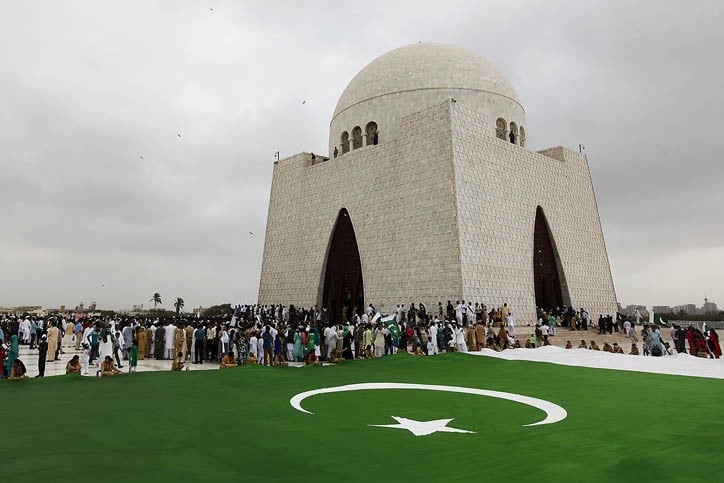

Another major area of concern for the nation-state has been the ambiguity inherent in defining the idea of Pakistan. Since this definition was shifting from the Aligarh-led ideology to the Arab-centric approach prevalent after 1949, it became increasingly more exclusionary.
Rather than being in tune with the historical currents of the day, ideas of state and nationhood after the Objectives Resolution became increasingly entrenched in religious ideology, thereby creating a separation between the socio-cultural and historical precedents of Muslim India and the here-and-now of the independent postcolonial state of Pakistan.
This ahistorical attempt at the creation of a state ideology not steeped in the social and cultural milieu of the subcontinent is the single largest contributor to the onto-epistemic violence of a state, out of sync with global trends and indigenous exigencies. During the decade of the 1980s, this trend manifested itself through the draconian legislation and ordinances passed by the dictatorial regime of Zia ul Huq. Laws like the Hudood Ordinance and the Blasphemy laws accentuated the path of exclusionism.
This has culminated in the existentialist threat that the nation-state of Pakistan has come to face in the twenty-first century. The people’s will and the military’s valiant efforts in confronting the existentialist threat to the state need to be lauded.
All rehabilitation projects in the wake of natural calamities as well as operations like Zarb-i-Azab and Rad-ul-Fasad against terrorism are conducted by the military with the support of the public. Thus, one of the most heartening aspects of life in this country is knowing that these two spheres of the polity cooperate when there is real need.
The 70-year history of Pakistan is indeed chequered. Political instability leading to military intervention, sectarian animosity, external threats, and a fledgling economy have repeatedly created hurdles in Pakistan’s progress as a modern, sovereign nation-state.
Read also: The idea of Pakistan
However, the events in the past ten years have indicated unprecedented maturity on the part of various stakeholders. Political upheaval now does not result in investors rushing to eject capital from the economy, or the threat of the democratic and parliamentary system being wrapped up. Instead, political actors show the maturity originally exhibited by Jinnah in capturing limited political space in the colonial dispensation and then continually vied to extend its remit. If an elected politician is removed, he is replaced by another elected politician which indicates a continuity of policies.
This, more than anything else, ensures economic stability. It has taken 70 years for this political sagacity to strike roots, but it now seems the norm that all players realise the need for political and economic stability.
Religious exclusionism (indicated by the persecution of minorities) and sectarian violence have gone hand-in-hand through all these years. What is heartening is that the state now feels the need to generate an alternative, pluralistic discourse to act as counter-narrative against the religious/sectarian narrative.
That is where the academia must now play a decisive role. It is my belief that the state needs to encourage and spread the circle of influence of academics. For that, one must reiterate a need to promote the study of the social sciences and humanities. State patronage of social scientists and academics associated with progressive fields will definitely help spread the new discourse thus created. State education policies are currently dangerously skewed towards the natural sciences. The necessity of studying science cannot be underestimated, undoubtedly, but when a state implements policies that are visibly favouring one sphere of study over the other(s), this creates a cleavage in the sources of knowledge production in society.
Many of our problems can be traced to the restricted space in which academics in general and social scientists in particular are allowed to operate. W. B. Yeats noted in his famous poem ‘Second Coming’: "The best lack all conviction, while the worst/ Are full of passionate intensity".
Even though I am one of the staunchest critics of Pakistani academia for its nonchalance and lethargy, nevertheless I earnestly believe that given a chance to realise their unfulfilled potential, these academics can translate their conviction into meaningful and substantive action.
This overview of Pakistan’s first 70 years might present a bleak picture to critics and several historians. Khalid Bin Sayeed’s assessment of Pakistan as "an aberration from the norm" seems to be echoed in Venkat Dhulipala’s 2011 article: "A Nation State Insufficiently Imagined?" As I have argued, Pakistan was not insufficiently imagined. Rather, it is a nation-state creatively, intuitively, dynamically and sufficiently imagined.
Over 70 years, our statesmen, leaders, and civil society activists have strived and worked tirelessly to construct an identity that is fluid in its acceptance of the changing needs of time. How can such a state be considered as having been insufficiently imagined? In fact, our founding fathers had the far-reaching vision and political acumen to realise that the nation-state of Pakistan would need to continue defining and redefining its identity. Thus, they embedded into the structures of the state room for improvement and growth. This space has been recently stretched by the political class to assert its supremacy in the state. Thus, the future does not seem bleak at all. The state was sufficiently imagined, indeed.
Robert Frost once stated that, "the woods are lovely, dark, and deep,/ and I have promises to keep,/ and miles to go before I sleep". There are miles to go before my generation. I was born in Pakistan and grew up hearing stories of the sacrifices made by my parents’ generation -- can pass on the baton to the generation represented by my children. The journey, however, promises a destination that will be the culmination of Jinnah’s futuristic dream.
It is with this dream in mind that I leave you with a line from Faiz Ahmed Faiz: walk on, for the destination has still not been reached.
Chalay chalo keh woh manzil abhi nahi ayi
(Concluded)